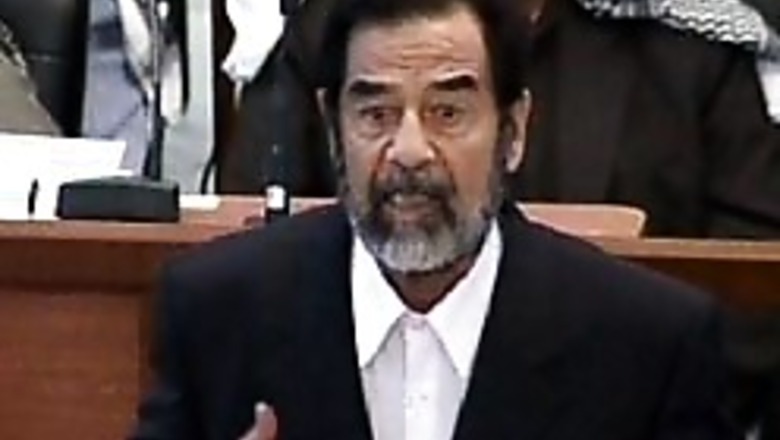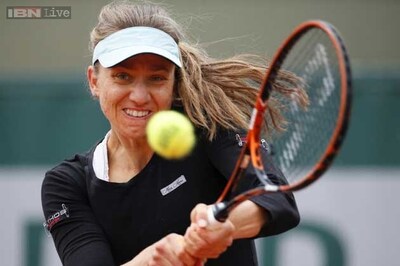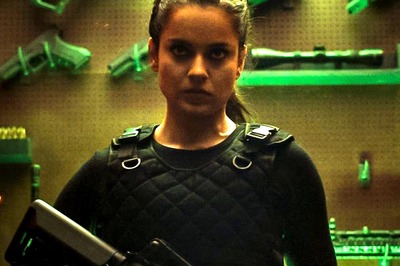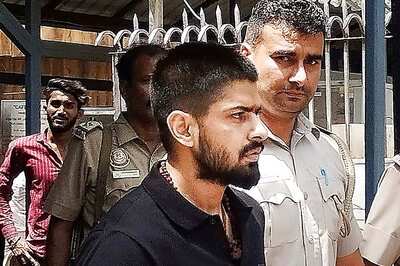
views
Baghdad: Former Iraqi leader Saddam Hussein's trial resumed after a gap of one month.
Defence lawyers for Saddam attended a session of his trial ending the boycott of the proceedings.
This session was one of the most orderly since the trial began in October.
The chief judge opened the session by announcing that the chief prosecutor will not be removed from the trial.
The five-judge panel had rejected this defence request. Saddam's chief lawyer said he would appeal that decision.
Saddam's lawyers, Khalil al-Dulaimi and Khamis Ubaydi, had walked out of the courtroom at the start of the hearing after the judge rejected their pleas for proceedings to be postponed and for the judge and chief prosecutor to be dismissed for alleged bias against the accused.
The chief prosecutor then presented a series of documents concerning the killing of more than 140 Shiites in 1982. Saddam Hussein can face death by hanging if he is convicted.
Iraqi prosecutors submitted to the court trying Saddam what they said was an execution order signed by the former Iraqi dictator, as his lawyers once again stormed out of the tribunal.
Documents were presented linking Saddam to the trial and execution of 148 villagers from Dujail, north of Baghdad in some of the most significant documentary evidence to have been presented by the prosecution so far.
Prosecutors also submitted documentary evidence to show Saddam's office had ordered that the sentences be carried out, along with a letter, dated March 23, 1985, confirming the executions had taken place and a doctor was on duty to confirm the deaths.
Saddam's lawyers have continued to demand the sacking of chief judge Abdel Rahman, charging he was biased and prejudiced.
Ramsey Clark, the former US attorney general who is helping to defend Saddam, has submitted a motion recently claiming the judge "is not impartial and has a manifested bias against the defendant".
He has "repeatedly violated standards of fair trial, human rights and basic due process in the courtroom", according to Clark.
The defence claims Abdel Rahman is biased because he is a native of the Kurdish village of Halabja, the target of a 1988 chemical attack in which some 5,000 people, including women and children, were killed.
Since the stern Abdel Rahman took over as the chief judge of the trial, Saddam has often been locked in heated verbal exchanges with him, often plunging the sessions into chaos.
With AFP inputs


















Comments
0 comment